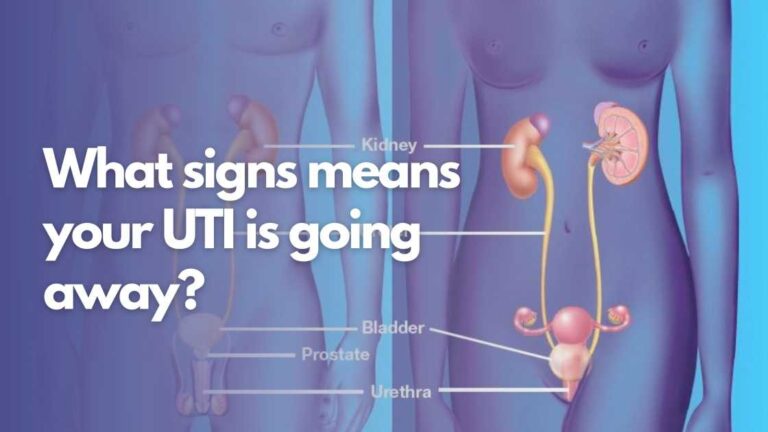Being a lover of lactose and discovering that you are lactose intolerant can be very disheartening if you find yourself in such a state. If you are one such person, you would be asking yourself the question “what happens if I ignore this lactose intolerance”?
Is there going to be a time when I take lactose and not get that worrisome rumble in my stomach?
Well, a lot of studies have been done on lactose intolerance, and having the right knowledge about this condition will go a long way to help you. Hence, what you will gain from this article, is all the requisite facts that you need to stay healthy and prevent complications.
But before we talk about what will actually happen if you ignore lactose intolerance, let’s get the necessary information you need to know about lactose intolerance in order to understand what actually happens.
What is lactose intolerance?
Lactose intolerance occurs when your body is unable to digest or break down lactose. Lactose is a sugar that can be found in milk and other dairy products. It occurs when your small intestine does not produce enough lactase, a digesting enzyme.
Lactase is an enzyme that breaks down lactose in meals so that your body can absorb it. Lactose intolerant individuals experience unpleasant symptoms after eating or drinking milk or milk products. Bloating, diarrhea, and gas are some of the symptoms.
Lactose intolerance is not the same as having a milk food allergy. Asian Americans, African Americans, Mexican Americans, and Native Americans are the most likely to have lactose intolerance.
It’s possible that the condition will make you feel uneasy and embarrass you. There is no treatment, but you can control it by limiting the amount of milk or milk products you consume.
What causes lactose intolerance?
Lactose intolerance is caused by a number of factors. Lactose intolerance can affect both toddlers and adults. The following are some of the most common causes of this condition:
- It is often passed down through generations (hereditary). In some instances, a person’s body may produce less lactase enzymes over time. Symptoms may appear during adolescence or adulthood.
- After an accident, a sickness, or an infection, the small intestine may stop producing lactase.
- Some newborns who are born prematurely may not be able to produce enough lactase. This is usually a temporary issue that goes away.
- People who are born without the ability to produce any lactase are extremely rare.
Can lactose intolerance develop over time?
Breast milk contains lactose, which almost everyone is born with the ability to digest. Lactose intolerance, on the other hand, can strike at any age, even in adulthood.
Lactose intolerance comes in several forms, each of which can be caused by a variety of reasons. Lactose intolerance, on the other hand, is caused by a lack of the enzyme lactase.
What are the symptoms of lactose intolerance?
Lactose intolerance manifests itself in a variety of ways.
Symptoms differ from person to person. Symptoms usually appear 30 minutes to 2 hours after consuming lactose-containing foods or beverages.
Among the signs and symptoms are:
- Bloating
- Gas
- Diarrhea
- Cramps and pain in the belly (abdominal) area
- Nausea
The severity of your symptoms will be determined by how much lactose you’ve consumed and how much lactase your body produces. Lactose intolerance symptoms can resemble those of other health issues. To be sure, consult your healthcare provider.
Types of lactose intolerance
Lactose passes through your intestines undigested if you don’t have enough lactase, causing digestive problems. Lactase deficiency can be caused by a variety of factors. The many varieties of lactose intolerance are listed below.
Primary lactose intolerance
The most prevalent type of lactose intolerance is caused by a decrease in lactase synthesis as people become older. As a result, your ability to absorb lactose diminishes over time. Because this type of lactose intolerance is more widespread in some populations than others, it could be partly inherited.
According to studies, this syndrome affects less than 10% of Northern Europeans, roughly 50% of Latin and Middle Eastern populations, and 80–99% of African and Asian people.
Secondary lactose intolerance
Secondary lactose intolerance occurs when another ailment affects the small intestine, which is where lactase is created.
This is because lactase production may be temporarily reduced due to inflammation in the gut wall. Crohn’s disease, celiac disease, chemotherapy, ulcerative colitis, and age are all possible causes of secondary lactose intolerance.
Congenital lactose intolerance
Lactose intolerance is present at birth in babies. It’s a rare, inherited form of lactose intolerance in which both parents must have the specific gene mutation for congenital lactose intolerance in order for the child to be born with it.
Due to the lactose content of breast milk, many newborns are unable to nurse, and the disease can be fatal if not treated promptly. Severe diarrhea and excessive calcium levels are possible side effects. This is also a lifelong condition.
Developmental lactose intolerance
Lactose intolerance develops in children as well. It’s only observed in premature newborns who are born before their digestive systems have fully grown, and it produces symptoms such as digestive distress.
This issue usually goes away as the baby grows older, but in the meanwhile, your kid might need lactose-free formula instead of breast milk.
What happens if you ignore lactose intolerance?
Lactose intolerance has diverse effects on different people. Even those with lactose sensitivity have been demonstrated to be able to ingest a certain quantity of lactose products without feeling symptoms.
The severity of lactose symptoms is determined by how much lactose your body can tolerate. Lactose intolerance, if ignored, can cause serious digestive difficulties in people who continue to consume lactose-containing foods.
Boating, flatulence, abdominal pains, diarrhea, and gas pains in the stomach and chest are some of the health issues that can arise if you ignore lactose intolerance or fail to manage it.
Thus, if you like lactose-containing products so much and cannot give them up, then you should be aware of the possible consequences that you are likely to face any time you take them.
Also, since there is a possibility of tolerating small amounts of lactose, you can go the trial and error route. Start by taking a very small amount of lactose and increase it gradually over a period of time. By doing this, you will take note of the amount of lactose that you can tolerate.
Once you identify your maximum tolerable amount, make sure not to go above it whenever you decide to take lactose in order not to get related complications.
How is lactose intolerance diagnosed?
Lactose intolerance is diagnosed in a variety of ways. Your healthcare professional will inquire about your medical history as well as your family’s medical history. He or she will do a physical examination on you.
You may be instructed to refrain from drinking milk or milk products for a period of time to see if your symptoms improve.
Some tests can assist your doctor in determining whether or not you have lactose intolerance. These may include the following:
Stool acidity test
For infants and young children, this test is used. It determines how much acid is present in the stool. Lactic acid, glucose, and other fatty acids will be present in the stool of someone who is unable to digest lactose.
Hydrogen breath test
You will consume a liquid that is high in lactose. Several times, your breath will be examined. If you have a lot of hydrogen in your breath, you might be lactose intolerant.
Lactose tolerance test
This test examines how lactose is absorbed by your digestive tract. You will be instructed to fast for around 8 hours before the test.
This frequently entails refraining from eating after midnight. You will be given a lactose-containing liquid to sip throughout the test. Over the course of two hours, certain blood samples will be obtained into some devices.
These devices will measure your blood sugar (glucose) level. You may be lactose intolerant if your blood sugar levels do not rise.
What is the treatment for lactose intolerance?
There is no known way to make your body produce more lactase. However, by altering your diet, you can manage your symptoms.
Lactose intolerant people were formally advised to avoid dairy products. Today, health professionals recommend that you test a variety of dairy foods to discover which ones give the least number of symptoms. You’ll still receive enough calcium and other essential elements this way.
Here are some dietary lactose management tips:
- Consume dairy products that are naturally low in lactose. Hard cheeses and yogurt are two examples.
- Lactose-free and lactose-reduced milk and milk products are available. These can be bought in a variety of grocery stores. They’re the same as conventional milk and milk products, but they’ve been infected with the lactase enzyme.
- Milk and milk products go well with a variety of dishes. If you drink milk or milk products with your meals, you may notice fewer symptoms. Try pairing cheese with crackers or cereal with milk.
Begin slowly. See how your body reacts to modest amounts of milk or dairy products.
Summary
The severity of lactose symptoms is determined by how much lactose your body can tolerate. Lactose intolerance, if left untreated, can cause serious digestive difficulties in people who continue to consume lactose-containing meals. It is therefore critical not to ignore lactose intolerance. Try to handle it as best you can.







Leave a Comment